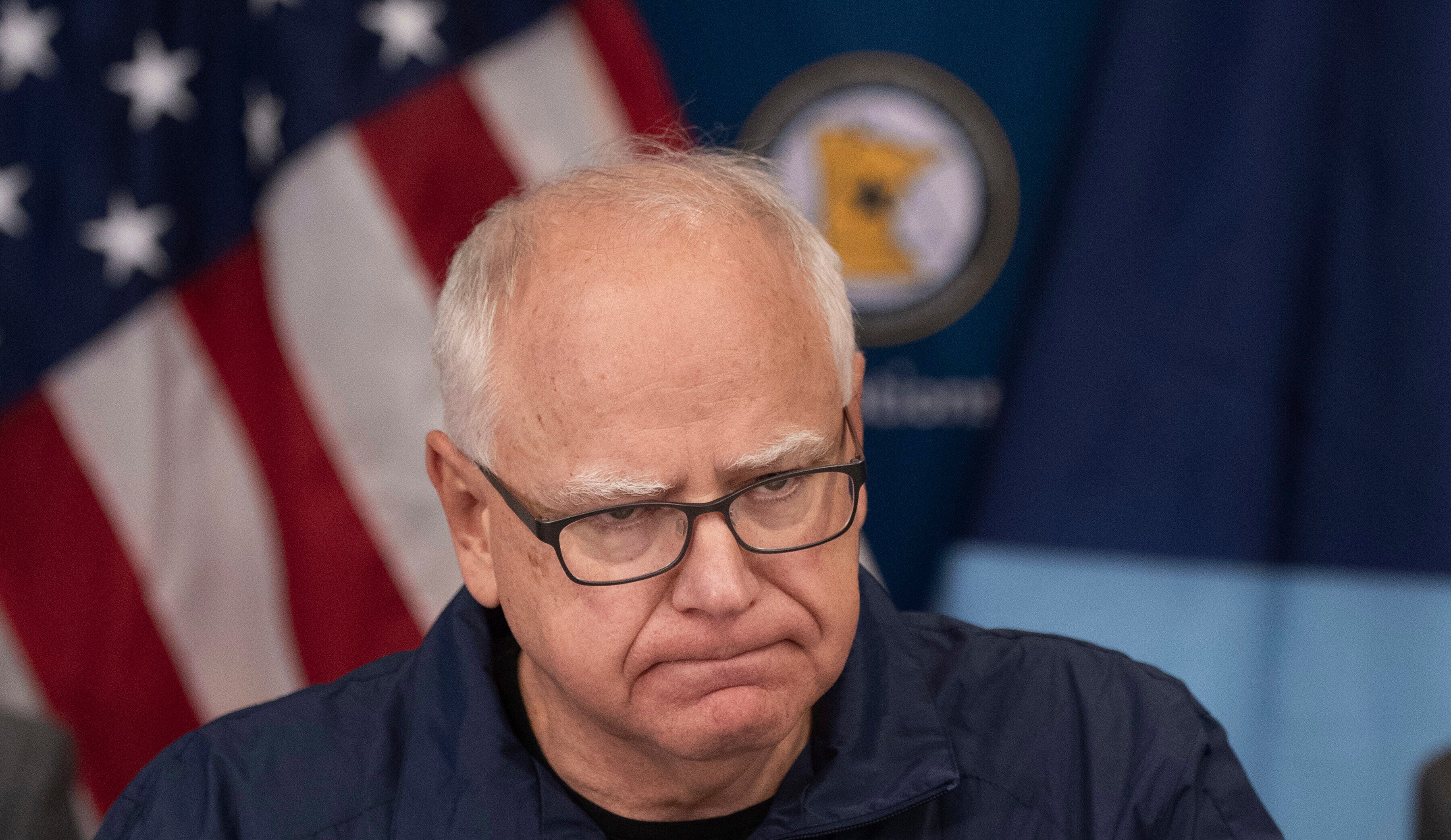Donald Trump couldn’t resist taking a partisan potshot at Minnesota’s Democratic governor when he responded to a reporter who asked if he’d speak with Tim Walz in the wake of a deadly targeted assassination of a Democratic lawmaker and the attempted politically motivated murder of another in the state.
Trump was asked by ABC’s Rachel Scott over the weekend if he would speak on the phone with Walz, who condemned violent political rhetoric and “mean tweets” after a Democratic lawmaker and her husband were murdered by a man who police say was impersonating a member of law enforcement as he carried out a sick campaign of revenge against his political enemies.
In the attacks, Minnesota state Rep. Melissa Hortman and her husband were killed at home. A state senator and his wife were also shot and wounded at their home.
On Sunday, Walz announced the capture of a suspect, Vance Boelter, whom police describe as having made a hit list of Democratic-aligned politicians and activists — including members of the state congressional delegation.
The Republican president meanwhile could not muster harsher condemnation for the suspected shooter or even the attack itself than he could for Walz, his former opponent. Trump instead revealed his continued grudge against Walz, who was Kamala Harris’s running mate in the 2024 election, on Sunday.
Of the attack, he said: “Well, it's a terrible thing.”
Then, he immediately continued: “I think he's a terrible governor. I think he's a grossly incompetent person.”
Trump said he “may” call Walz and “other people, too” as he continues stubbornly to direct his administration in a bitter effort to provoke turf wars with state-level Democratic leaders, largely centered around his mass deportation plan.
His comments follow what Minnesota law enforcement officials called the “largest man-hunt in state history.” Sheriffs deputies called Boelter “the face of evil” in a social media post upon his capture.
Boelter, 57, is accused of dressing as a police officer and entering the homes of the two elected officials before opening fire in cold blood. Hortman and her husband had two children.
But a Rolling Stone investigation this month revealed that the GOP president was itching for a fight with Democratic governors and mayors at least as far back as January, when he took over the White House. The magazine reported that Trump privately discussed with aides how quickly they could justify sending in federal law enforcement or even members of the armed forces to suppress dissent or conduct
Trump’s feud with Walz comes as the Minnesota governor remains one of his most vocal critics among elected Democrats and governors nationwide.
The governor condemned political violence in much more coherent terms than the president in his own remarks Sunday evening.

“This cannot be the norm,” said Walz. “It cannot be the way that we deal with our political differences…It's not about hatred. It's not about mean tweets. It's not about demeaning someone. It's leading with grace and compassion and vision and compromise and decency.”
Axios reported Monday morning that Walz had still not received a call from the president. As of noon Monday, there wasn’t a statement on the White House website condemning the attack.
The suspected shooter’s apparent vendetta against Democrats sparked a predictable wave of conspiracies on the American far right, once again desperate to wash away any links to the suspect’s ideology.
Numerous right-wing figures including Donald Trump’s own newest confidante, Laura Loomer, falsely claimed that the suspect was a participant or organizer of “No Kings” protests that broke out concurrently this weekend around the country against the Trump administration.
The president has long been critized for what many see as a pattern of refusal to condemn political violence outright when it is committed by the far-right — as well as for jumping at the chance to paint his enemies as violent, even less than human.
After the Charlottesville “Unite the Right” rally in 2017, Trump was roundly condemned for rhetoric his critics saw as supportive of the overtly racist groups that made up the event. His reaction to the January 6 attack on Congress was equally scrutinized as Democratic leaders still point to his refusal to send in National Guard troops to protect lawmakers and a seemingly callous response to reports of death threats against Mike Pence, his vice president as their evidence for the theory.







